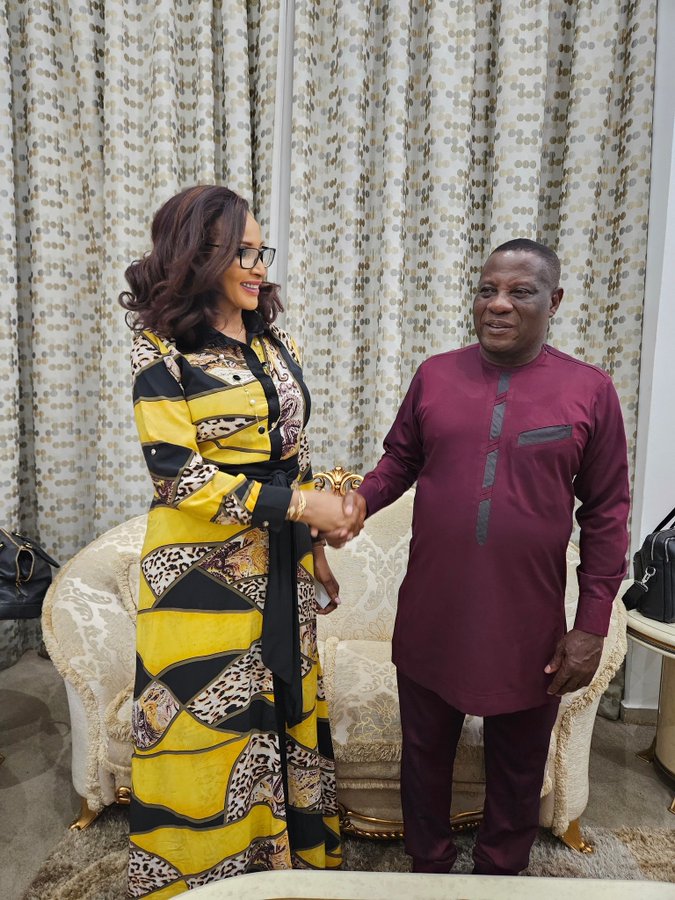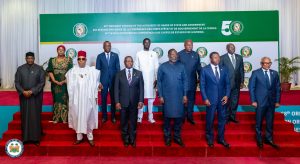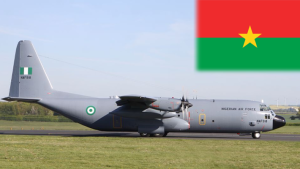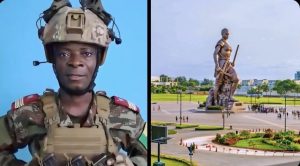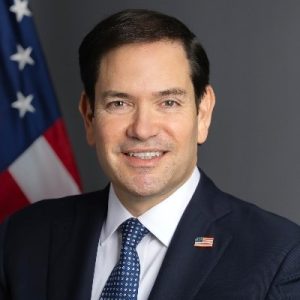Nigeria’s Minister of State for Foreign Affairs, Ambassador Bianca Odumegwu-Ojukwu, touched down at Kotoka International Airport in Accra on Tuesday, marking a key diplomatic effort to address widespread protests targeting Nigerian nationals in Ghana. The visit comes amid escalating concerns over alleged criminal activities attributed to some foreign nationals, which have fuelled public outrage and calls for deportations.
In a statement shared on social media shortly after her arrival, Ambassador Odumegwu-Ojukwu highlighted her meeting with Ghana’s Inspector-General of Police, Dr Christian Tetteh Yohuno. She emphasised that the Federal Government of Nigeria, aligned with President Ahmed Tinubu’s citizen diplomacy foreign policy, is “exploring all avenues to bring a diplomatic resolution to the crisis”. The protests, which have gained traction in recent weeks, stem from repeated incidents of crimes blamed on Nigerians, including prostitution, ritual killings, drug trafficking, and human trafficking.
The unrest has been particularly vocal in Accra, where demonstrators have staged rallies demanding the expulsion of Nigerians, with slogans such as “Nigerians Must Go” echoing through the streets. A notable flashpoint has been the controversy surrounding the installation of an Igbo king in Ghana by Nigerian expatriates, which protesters claim disrespects Ghanaian sovereignty and cultural norms. Viral videos circulating online show crowds accusing Nigerians of contributing to rising crime rates and societal disruptions, leading to the closure of some Nigerian-owned shops and heightened xenophobic sentiments.
Nigeria’s response has been swift and measured. The Nigerians in Diaspora Commission (NiDCOM), chaired by Abike Dabiri-Erewa, urged calm and condemned the generalisation of all Nigerians based on the actions of a few. “Very wrong to generalize a whole country,” Dabiri-Erewa stated, noting that the individual escalating the crisis had been arrested and that Ghana’s IGP had publicly denounced hostile videos. The Nigerian Senate also weighed in, condemning the protests and urging respect for African unity. Government officials have warned against xenophobia, emphasising diplomatic channels to resolve the issue.
Ambassador Odumegwu-Ojukwu, underscored the deep ties between the two nations in her announcement. “Nigeria and Ghana are brothers with a shared history and a common bond,” she wrote. “Both governments are committed to protecting and strengthening the special relationship that binds our countries.”
The protests echo historical frictions, such as the “Ghana Must Go” campaigns in Nigeria during the 1980s, but also highlight ongoing challenges in West African migration and integration. Analysts suggest that while criminal elements exist among expatriate communities, blanket accusations risk damaging economic and cultural exchanges between the two ECOWAS member states.

